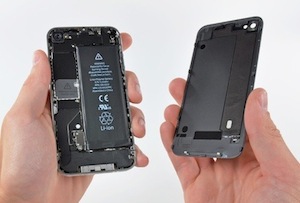Apple cuts Samsung memory chip order in reliance shift: report

Apple has reportedly reduced its memory chip orders from Samsung for the forthcoming next-generation iPhone, a key component supplier to the Cupertino, CA.-based company, in a bid to diversify its lines of supply and reduce its reliance on Samsung.

First reported by Reuters, citing a person with direct knowledge of the matter, Samsung remains on the list of initiall suppliers for the soon-to-be-released iPhone 5, pegged for a September 12 announcement.
The source, speaking anonymously, denied that the relationship shift was due to the patent-related courtroom battles between the two companies, which reached critical mass last month after Samsung was told to pay Apple more than $1 billion in damages for infringing the iPhone and iPad maker's patents.
Samsung remains the world's largest memory chip supplier by revenue, makes DRAM memory and NAND flash memory chips for the iPhone, iPad and iPod, but could be sidelined in favor of Japan-based Toshiba, Elipida Memory, and South Korea-based SK Hynix to supply memory and flash chips, which Apple is eyeing for the long-term.
"Orders to SK Hynix for both mobile DRAM and NAND flash memory chips from Apple have risen in recent months," according to one source speaking to the Wall Street Journal.
The chipmaker and technology giant is making up for the reduced order -- thought to be around a quarter of all components in Apple's iPhone and iPad -- from other device makers and manufacturers.
Earlier this year, Apple tried to secure exclusivity to a major Taiwan-based semiconductor firm by investing $1 billion in the chipmaker, but reportedly rejected Apple's bid.
However, Apple later acquired Anobit, an Israeli startup that makes flash memory chips for the iPhone, iPad and MacBook Air for around $400--500 million, one of Apple's largest acquisitions to date. The move was thought to be a bid to wean the technology giant off third-parties for vital hardware components.